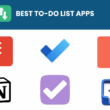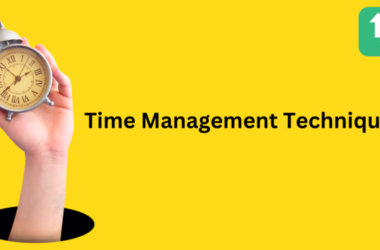Table of Contents Show
In the dynamic world of business and personal productivity, setting and achieving goals can often feel like navigating through a maze. This is where OKR (Objectives and Key Results) coaching comes into play.
OKR coaching is a structured approach that helps individuals and organizations clarify their goals, align their efforts, and track their progress effectively.
This comprehensive guide delves into the world of OKR coaching, its benefits, and how it can transform your approach to goal-setting and achievement.
What is OKR Coaching?
OKR coaching is a specialized form of coaching that focuses on helping individuals and teams set, track, and achieve their objectives using the OKR framework.
Unlike traditional coaching, which may focus on broader aspects of personal or professional development, OKR coaching is specifically designed to enhance goal-setting processes and outcomes.
An OKR coach is a facilitator, guiding teams through the OKR cycle, from setting ambitious yet achievable objectives to defining measurable key results.
The coach ensures that these objectives align with the organization’s overall goals and that every team member understands their role in achieving them.
Benefits of OKR Coaching
OKR (Objectives and Key Results) coaching offers numerous advantages for both individuals and organizations.
By providing structured guidance and support, OKR coaching helps to maximize the effectiveness of the OKR framework, leading to significant improvements in goal-setting, alignment, accountability, and overall performance.
Here are some of the key benefits of OKR coaching:
1. Enhanced Goal Clarity and Focus
OKR coaching helps teams and individuals set clear, specific, and measurable objectives. This clarity ensures that everyone understands what they are working towards and why it matters.
A well-defined objective, paired with quantifiable key results, eliminates ambiguity and provides a focused direction, enabling teams to concentrate their efforts on what truly matters.
2. Improved Alignment Across Teams
OKR coaching ensures that all team members’ objectives are aligned with the organization’s overall goals.
This alignment fosters collaboration and synergy, as everyone understands how their contributions fit into the larger picture. It helps break down silos, promotes cross-functional teamwork, and ensures that efforts are directed toward common goals.
3. Increased Accountability and Performance Tracking
Regular check-ins and progress reviews are integral to the OKR coaching process. These sessions hold team members accountable for their objectives and key results, fostering a culture of responsibility and continuous improvement.
By tracking progress and providing feedback, OKR coaches help teams stay on track and make necessary adjustments to achieve their goals.
4. Better Decision-Making and Resource Allocation
OKR coaching provides a structured approach to goal-setting and progress tracking, enabling better decision-making and resource allocation.
By focusing on key results, organizations can identify areas that require more attention and resources, ensuring that efforts are directed toward the most impactful activities.
5. Enhanced Motivation and Engagement
OKR coaching helps create a motivating environment by setting ambitious yet achievable goals and providing regular feedback. When team members see their progress towards meaningful objectives, it boosts their morale and engagement.
The sense of accomplishment from achieving key results fosters a positive and productive work culture.
6. Continuous Learning and Improvement
The iterative nature of OKR coaching promotes a culture of continuous learning and improvement. By regularly reviewing objectives and key results, teams can reflect on what worked well and what didn’t, and apply these insights to future OKR cycles.
This ongoing process of evaluation and adjustment leads to sustained growth and performance enhancement.
Check this out:
OKR vs KPI: Mastering Business Strategies for Success
Qualities of a Great OKR Coach
A great OKR coach possesses several key qualities:
- Deep Understanding of the OKR Framework: They must be well-versed in the principles and practices of OKRs.
- Strong Communication and Interpersonal Skills: Effective communication is crucial for guiding and motivating teams.
- Ability to Inspire and Motivate: A great coach can inspire teams to set ambitious goals and strive for excellence.
- Analytical Skills: They should be adept at tracking progress and identifying areas for improvement.
The OKR Coaching Process
The OKR (Objectives and Key Results) coaching process is a systematic approach designed to help individuals and teams set, track, and achieve their goals effectively.
By following a structured process, OKR coaches can ensure that their clients not only set meaningful objectives but also achieve measurable results.
Here’s a detailed look at the key steps involved in the OKR coaching process:
1. Initial Assessment and Goal-Setting
The first step in the OKR coaching process is to conduct an initial assessment. This involves understanding the current state of the organization or team, including its goals, challenges, and overall strategic direction. The coach gathers information through interviews, surveys, and data analysis to get a comprehensive view of the current situation.
Once the assessment is complete, the coach works with the team to define clear, specific, and measurable objectives. These objectives should be aligned with the organization’s overall goals and mission. The goal-setting phase is crucial because it sets the foundation for the entire OKR process.
2. Developing a Customized OKR Plan
With the objectives in place, the next step is to develop a customized OKR plan. This plan outlines the key results that will be used to measure progress toward each objective. Key results should be quantifiable and time-bound, providing clear indicators of success.
The OKR plan also includes a detailed strategy for achieving the objectives, identifying the necessary resources, and assigning responsibilities to team members. This ensures that everyone knows their role and how their efforts contribute to the overall goals.
3. Regular Check-Ins and Progress Reviews
Regular check-ins and progress reviews are integral to the OKR coaching process. These sessions, typically held bi-weekly or monthly, provide an opportunity to monitor progress, address any challenges, and make necessary adjustments. The coach facilitates these meetings, ensuring that they are productive and focused on the key results.
During these check-ins, team members report on their progress, discuss any obstacles they are facing, and collaborate on solutions. The coach provides guidance, feedback, and support to help the team stay on track.
4. Adjusting Objectives and Strategies
Flexibility is a crucial aspect of the OKR process. As teams work towards their objectives, they may encounter unforeseen challenges or changes in priorities. The coach helps the team remain agile by regularly reviewing and adjusting objectives and strategies as needed.
This iterative approach ensures that the OKRs remain relevant and aligned with the organization’s evolving needs. Adjustments might involve redefining key results, reallocating resources, or shifting focus to new priorities.
5. Tools and Techniques Used in OKR Coaching
OKR coaches utilize various tools and techniques to facilitate the coaching process and enhance its effectiveness. These tools include OKR software platforms, performance dashboards, and collaborative tools that streamline goal-setting, tracking, and communication.
- OKR Software Platforms: Tools like Asana, Perdoo, and WeekDone help teams set, track, and manage their OKRs efficiently.
- Performance Dashboards: Visual dashboards provide real-time insights into progress and performance, making it easier to monitor key results.
- Collaborative Tools: Platforms like Slack and Microsoft Teams facilitate communication and collaboration among team members.
OKR Training and Certifications
OKR training and certifications play a crucial role in ensuring that coaches are well-equipped to guide teams effectively. Various organizations offer OKR training programs, providing coaches with the knowledge and skills needed to excel in this field.
- Overview of Available OKR Training Programs: Numerous online and in-person programs are available, covering the basics of OKRs to advanced coaching techniques.
- Importance of Certifications: Certifications validate a coach’s expertise and enhance their credibility.
- Notable Organizations Offering OKR Certifications: Organizations such as the OKR Institute offer comprehensive certification programs.
To become a certified OKR coach, one typically needs to complete a training program, pass an examination, and demonstrate practical experience in coaching teams.
Implementing OKR Coaching in Your Organization
Implementing OKR coaching involves several steps:
- Identifying the Need for an OKR Coach: Assess whether your organization could benefit from structured goal-setting and alignment.
- Selecting the Right OKR Coach: Look for a coach with relevant experience, a proven track record, and strong interpersonal skills.
- Integrating OKR Coaching into Your Organizational Culture: Foster a culture of continuous improvement and alignment by embedding OKR practices into daily operations.
- Measuring the Impact of OKR Coaching: Use performance metrics to evaluate the effectiveness of OKR coaching and make adjustments as needed.
Challenges in OKR Coaching and How to Overcome Them
Despite its benefits, OKR coaching can present challenges:
- Common Obstacles: Resistance to change, lack of clarity in objectives, and insufficient commitment from team members are common hurdles.
- Strategies for Overcoming Resistance: Effective communication, involving team members in the goal-setting process, and demonstrating the benefits of OKRs can help overcome resistance.
- Ensuring Continuous Improvement: Regularly review and adjust OKRs to reflect changing circumstances and priorities.
Conclusion
In summary, OKR coaching is a powerful tool for enhancing goal clarity, alignment, and accountability in both personal and organizational contexts.
By selecting the right OKR coach and integrating OKR practices into your culture, you can achieve sustained growth and productivity.
Investing in OKR coaching is not just a step towards better goal-setting; it’s a commitment to continuous improvement and excellence.
Embark on your OKR coaching journey today and unlock your full potential.










